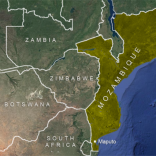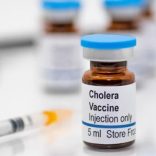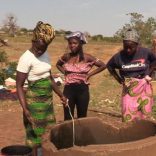Mozambique: Authorities in Macomia say they have no information on child abductions
EU’s 2016 report on human rights, democracy in Mozambique – Unabridged

On Monday 16 October 2017 the Council adopted the EU Annual Report on Human Rights And Democracy in the World in 2016.
2016 was a challenging year for human rights and democracy, with a shrinking space for civil society and complex humanitarian and political crises emerging. In this context, the European Union showed leadership and remained strongly committed to promote and protect human rights and democracy across the world.
This report gives a broad picture of the EU’s human rights efforts towards third countries in 2016, and encompasses two parts: The first part is thematic, and pays particular attention to the human rights approach to conflicts and crises, main human rights challenges and human rights throughout EU external policies. The second part is geographical and covers EU actions in third countries, thus mapping in detail the human rights situation across the globe.
(…)
Republic of Mozambique
In 2016, the overall human rights situation deteriorated in Mozambique. This was mainly linked to the political and military tension between the government and the Renamo opposition party. Unsolved assassinations, political repression and intimidation targeting government opponents in particular has continued, while, in conflict-affected areas, Mozambicans continued fleeing to neighbouring countries to avoid violence.
The EU’s priorities reflect developments regarding political and military tension. In parallel to peace and democratic reconciliation, support for the strengthening of civil and political rights such as freedom of expression, access to information and the rule of law are also among the priorities. Particular attention has been also paid to women’s rights, including the implementation of the national strategy to end child marriage.
The drafting of a democracy profile/action plan was intended to make it easier to identify joint priorities with the Member States. In this regard, encouraging dialogue with a view to sustained reconciliation and a more inclusive democratic settlement has been a constant EU concern. The spokesperson for the HRVP made three statements in this regard. The EU has been also proactive in supporting basic rights and freedoms, including freedom of expression. These issues, as well as the need to reinforce the rule of law, were on the agenda for the Article 8 Political Dialogue (two sessions held in 2016).
The government of Mozambique announced that the UN Special Rapporteur on extrajudicial, summary or arbitrary executions would visit the country in 2017. Other issues related to human rights defenders and individual cases were also addressed with the government on various occasions. Protection was extended to HRDs by accompanying them when they were summoned by police. The European Instrument for Democracy and Human Rights (EIDHR) mechanism was activated in four or five individual cases to cover legal and medical expenses. Also, in two EU-funded projects, riders were accepted to allow NGOs to use contingencies to cover losses after robbery and other acts of intimidation.
Democratisation was supported through 11 EDF projects focusing on civic education and participatory planning. Three EIDHR projects promoting access to information started their activities (access to information in the extractive industry, local community monitoring of social protection programmes, and supporting civil society to promote access to information, rights and freedom of expression). Financial support and technical assistance and training was provided by the EU and Member States to a large number of CSOs, including through the PAANE (EU) and the AGIR programme (Sweden, Netherlands, Denmark). The EU also organised training session for a group of human rights defenders.
The EU and Member States continued to support CSOs working on women’s rights and gender equality (women’s economic empowerment, women’s political participation, gender-based violence, sexual and reproductive health and rights, access to education). The gender country profile carried out with EU funding was officially launched. Three EIDHR projects on women and children’s rights started. The EU was also active in contributing to fighting violence againstwomen and children: an EU-funded project put in place a ‘short telephone number’ to report domestic violence in Matola. Another EU-funded project put in place a children’s helpdesk centre to provide assistance in cases of violence in Pemba (similar helpdesks are operational in Beira and Nacala).
The AGIR program carried out specific work on children’s rights and on combating child abuse, child marriage and child trafficking. The programme also engaged with HRDs who fight discrimination against the elderly, children, women, people living with HIV/AIDS, persons with disabilities, and the LGBT community, among others.
Mozambique was visited by the Independent Expert on the enjoyment of human rights by persons with albinism and the Subcommittee on the Prevention of Torture. Mozambique also went through its second Universal Periodic Review (UPR) in 2016, accepting 180 out of 210 recommendations. However, it did not accept important recommendations such as those related to the ICC or LGBTI issues.
Peace and consolidation of democracy remains an important challenge for the future. Moreover, the strengthening of justice and respect for fundamental rights requires furtherprogress. In this regard, despite some progress achieved, gender issues, including equal rights, continue to be worthy of particular attention.
(…)
Access the full EU Annual Report on Human Rights And Democracy in the World in 2016 here.












Leave a Reply
Be the First to Comment!
You must be logged in to post a comment.
You must be logged in to post a comment.